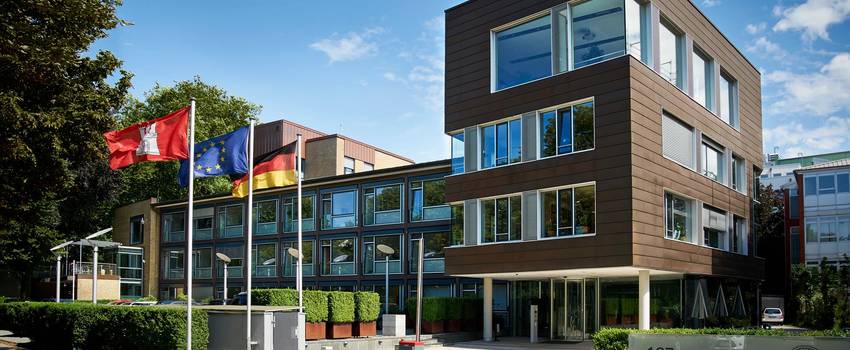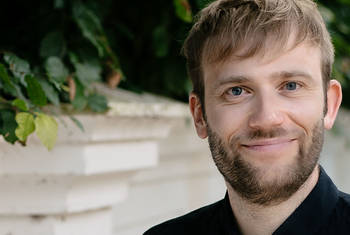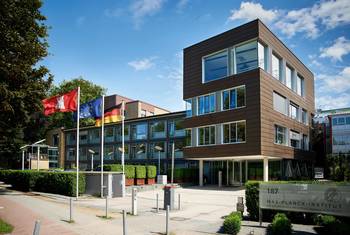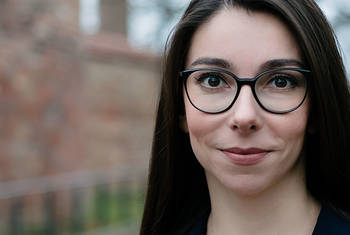Dominik Krell Can Islamic Law Evolve Without the Interference of the State?
Dominik Krell is a research associate at the Max Planck Institute for Comparative and International Private Law in Hamburg. Fluent in Arabic (as well as German, Spanish and English), in 2018 Krell conducted research at the King Faisal Center for Research and Islamic Studies in Riyadh, Saudi Arabia. He has also completed an M.Sc. in Social Anthropology at the University of Oxford (2014). Krell’s research focuses on Islamic Law, Comparative Law and Legal Anthropology.
Area of Research
Law of Islamic Countries
since 2016
Research Associate
Max Planck Institute for Comparative and International Private Law (more details)
2018-2018
Visiting Fellow
King Faisal Center for Research and Islamic Studies, Riyadh (Saudi Arabia)
2008-2016
State Examination in Law
Humboldt University of Berlin (Humboldt-Universität zu Berlin)
Free University of Berlin (Freie Universität Berlin)
2013-2014
M.Sc. in Social Anthropology
University of Oxford
2009-2013
Bachelor of Arts
Free University of Berlin (Freie Universität Berlin)
History and Culture of the Middle East
2008-2008
Arabic Language Studies
University of Damascus
- International Society for Islamic Legal Studies (ISILS)
- British Society for Middle Eastern Studies (BRISMES)
- Gesellschaft für Arabisches und Islamisches Recht (GAIR)
- Deutsche Arbeitsgemeinschaft Vorderer Orient (DAVO)


Max Planck Institute for Comparative and International Private Law
Different countries, different cultures – and usually also a different basis for legal systems. The development of the European single market, the global integration of multinational business and commercial companies as well as the increasing internationalisation of our daily lives require that areas of private and commercial law provide solutions that cannot only be derived from the legal systems of individual countries. Academics at the Max Planck Institute for Comparative and International Private Law in Hamburg apply analysis of the differences and similarities between different legal systems to develop a foundation for an international understanding of law and its application to cross-border circumstances. This also includes addressing the methodological issues of comparative law and unification of law. The central research tool of the Institute is its library, which contains one of the world’s most extensive collections of literature on civil law. (Source)
Research Group
Research Group “Changes in God's Law - An Inner Islamic Comparison of Family and Succession Laws"
The Research Group “Changes in God's Law - An Inner Islamic Comparison of Family and Succession Laws" is led by Dr. Nadjma Yassari and has been in existence since 2009. Until the start of 2016 it was funded by the Max Planck Society; owing to the generous support of the Max Planck Foundation and Mrs. Traudl Engelhorn-Vechiatto, herself a long time supporting member of the Max Planck Society, the Research Group will be able to continue its successful work until 2023.
The first project of the Research Group primarily focused on marriage and the possibilities for its individual design as well as the impact and scope of family law codifications in selected Islamic countries. From 2014-2019, the Group looked at child law, particularly custody law and adoption in several Islamic jurisdictions. Since 2019, the Group focuses more intensely on succession law, particularly the transfer of property upon death. The methodology of the Research Group is built upon three pillars: a) an interdisciplinary approach and discussion of the law in practice, b) an inner-Islamic comparison and c) a consideration of the influence of procedural law on the substantive law.
Map
Rather than referring to laws written and developed by the state, judges in Saudi Arabia largely rely on Islamic jurisprudence and the interpretation of sacred texts. In this video, DOMINIK KRELL explores how legal reform can occur in these circumstances. Focusing on a form of divorce called khulʿ which is initiated by the wife and combining textual study with fieldwork interviews, he finds that Saudi jurists were able to reinterpret Islamic divorce law without state interference and thereby increased women’s possibilities to end unhappy marriages.
LT Video Publication DOI: https://doi.org/10.21036/LTPUB10975









